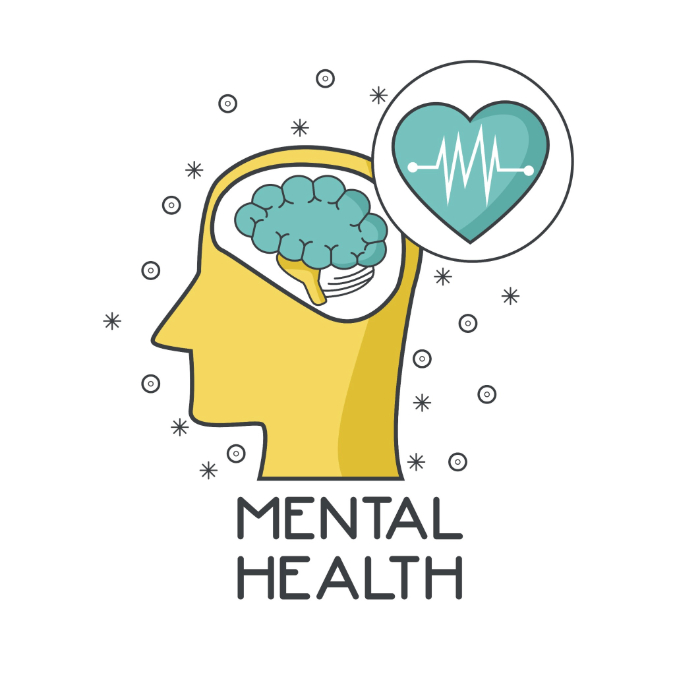Did you know that May is National Mental Health Awareness Month? Mental Health Awareness Month was established in 1949 to increase awareness of the importance of mental health and wellness in Americans’ lives. There are several ways to take care of your mental health, such as exercising, eating healthy, and getting enough sleep.
However, sometimes life doesn’t allow for these self-care habits, and as a result, your mental health can suffer. Neglecting mental health can have serious consequences, impacting every aspect of daily life from relationships to work productivity. Here are 10 signs that you may be neglecting your mental health.
1. Persistent Stress
Feeling constantly overwhelmed and stressed without relief can indicate that you’re neglecting your mental health Ignoring stress can lead to burnout and exacerbate other mental health issues like anxiety and depression.
2. Changes in Sleep Patterns
Disrupted sleep patterns, whether it’s difficulty falling asleep, staying asleep, or oversleeping, can be a sign of underlying mental health concerns. Neglecting to address sleep disturbances can worsen mood and cognitive function. Most adults need at least seven hours of good-quality sleep. Practicing good sleep hygiene can help you get a better night’s sleep, and in turn, improve your mental health.
3. Loss of Interest
If activities or hobbies that once brought joy and fulfillment now seem uninteresting or meaningless, it could be a sign of neglecting your mental health. Losing interest in previously enjoyable activities is a common symptom of depression.
4. Social Withdrawal
Avoiding social interactions and isolating oneself from friends and family can be a red flag for neglected mental health. Social support is crucial for mental well-being, and withdrawing from social connections can exacerbate feelings of loneliness and depression.
5. Unhealthy Coping Mechanisms
Turning to unhealthy coping mechanisms such as excessive drinking, drug use, or overeating to deal with stress or emotions is a clear sign of neglecting mental health. These behaviors provide temporary relief but can worsen mental health in the long run.
6. Irritability and Mood Swings
Persistent irritability, mood swings, or unexplained changes in mood can indicate underlying mental health issues. Ignoring these symptoms can strain relationships and impact overall well-being.
7. Physical Symptoms without Medical Cause
Chronic headaches, stomach problems, muscle tension, and other physical symptoms without a clear medical cause could be manifestations of neglected mental health. The mind-body connection is strong, and mental stress can manifest as physical symptoms. Of course, if you are having physical symptoms it’s important to talk to your doctor.
8. Difficulty Concentrating
Neglecting mental health can impair cognitive function, leading to difficulty concentrating, making decisions, or remembering things. Persistent brain fog and forgetfulness can impact work performance and daily functioning.
9. Feelings of Hopelessness
Persistent feelings of hopelessness, worthlessness, or a sense that life is not worth living are serious signs of neglected mental health. Ignoring these feelings can lead to severe depression and increase the risk of self-harm or suicide. If you are feeling these feelings it’s important to seek out help from a professional or call a mental health hotline.
10. Ignoring Professional Help
Neglecting mental health often involves avoiding seeking professional help when needed. Whether due to stigma, fear, or denial, failing to seek therapy or counseling can prolong suffering and prevent necessary support and treatment. Reaching out for help is often necessary to improve your mental health.
Prioritizing Your Mental Health
It’s essential to recognize these signs of neglected mental health and take proactive steps to prioritize self-care. This can include seeking support from friends, family, or mental health professionals, practicing stress-reduction techniques such as mindfulness or meditation, engaging in regular physical activity, and maintaining a healthy work-life balance. By addressing mental health needs, individuals can enhance their overall well-being.
Read More
Comfort Zone or Stagnation? 13 Signs Your Marriage Needs a Wake-Up Call
60s Revolution to Evolution: 12 Cultural Trends That Didn’t Stand the Test of Time
The post 10 Signs You’re Neglecting Your Mental Health appeared first on Plunged in Debt.











